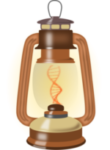I was able to attend the Illinois State Genealogical Society Fall Conference, Footsteps to the Past: Making Tracks Through Research, at the Holiday Inn in Itasca, Illinois on October 14. It was a day filled with interesting and informative sessions on many topics relating to genealogy. The first speaker was Sandra Hargreaves Luebking, FUGA, a nationally known professional lecturer, teacher, researcher and author. One of her most well known endeavors is co-editing, with Loretto Szucs, two editions of the award winning book The Source: A Guidebook to American Genealogy, with the most recent, third edition, debuting in 2006. I consider The Source to be indispensable to any genealogy or family history researcher, both hobbyist and professional.
You may be wondering what the FUGA after Ms. Luebking’s name stands for. The initials stand for Fellow, Utah Genealogical Association, which is an honorary credential given annually to only one or two genealogists to recognize their significant and ongoing contributions to the field of genealogy.
Ms. Luebking’s ISGS conference session was titled Be an Incredible!, after Disney’s animated movie The Incredibles. She presented steps to help us become “Incredibles” in genealogical research. The following are some of my tips and ideas that were inspired by her lecture. I will post more of these tips in future blog entries.
Tip #1: Make sure that you understand every word of your research. This means finding the exact meaning of all unfamiliar or ambiguous words and concepts that you come across. You must find these meanings in the correct time frame and place, since they may change over time and in different places. So for example, if you come across a word in an old will or probate record, you must research that word as it was defined at the time the will was written, and in the place (county and state) the will was written. Many times state law was different than common law, and state law supersedes common law. So, you may need to consult law dictionaries, such as Black’s Law Dictionary, from the time period in question, as well as traditional dictionaries. In short, get definitions for all terms, even if you think you know their meaning.
Tip #2: Find all records relating to what you are researching; don’t stop at just one source. If you are researching a death record, definitely get a copy of the death certificate or record. Then, look for obituaries in newspapers where the death occurred, within a few days of the death. Contact the cemetery where the individual was buried, or the funeral home that handled the funeral, for more information. You could find information such as where the person was employed, what groups they belonged to (i.e. Shriners, Masons, etc.) and many more exciting facts. These facts can point you to other places and sources to research and find more details about your subject.
Tip #3: Research people who who are related to your ancestor, in ways other than directly. By that I mean, research the brothers, sisters, cousins, aunts, uncles, children, nieces, nephews, and in-laws of your person. These people share common relatives with your ancestor. Don’t forget all the other people who touched your ancestor’s life who may shed light on your ancestor, if you research them. These people include your person’s friends, co-workers, fellow club members (like Mason’s or Lady’s Relief Society), neighbors, members of the same church, godparents, others from the same military unit, etc. These related people could be hiding that one piece of information for your ancestor that will send your brick wall crumbling down!
Well, I hope you are excited to get out your research and try one or more of these tips. I will be posting more tips and news on this blog, so be sure to check back often and bookmark us or add our feed to your newsreader. Until next time, Happy Hunting!

Great post! What other books do you recommend?
TribalPages automatically generates Ancestor, Descendant and Family Charts for each name in your site. Detailed printable Reports are also produced.